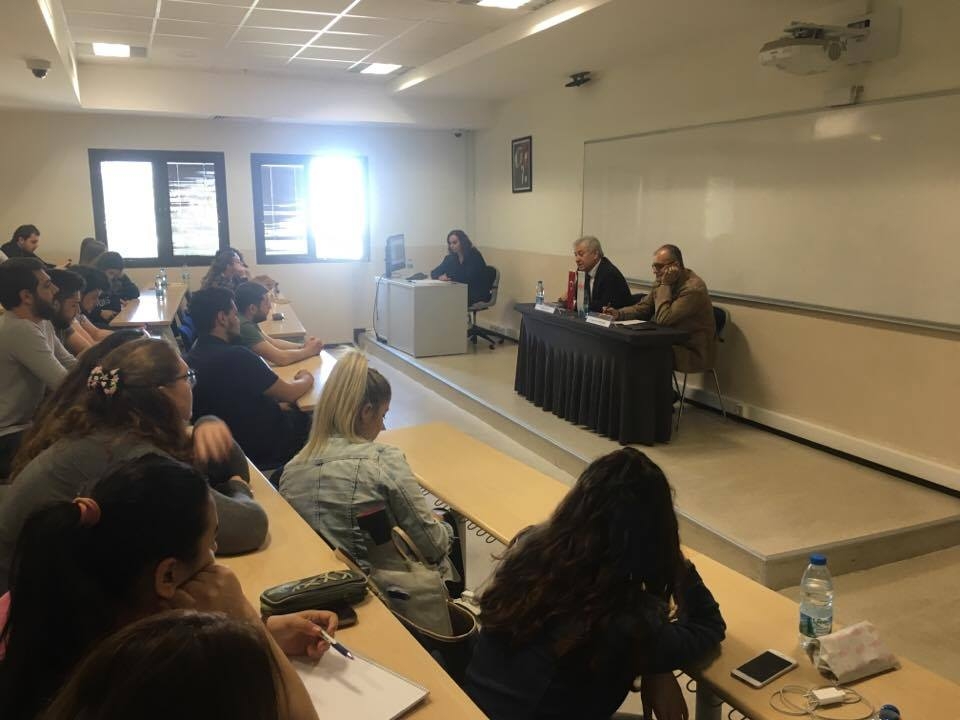
...
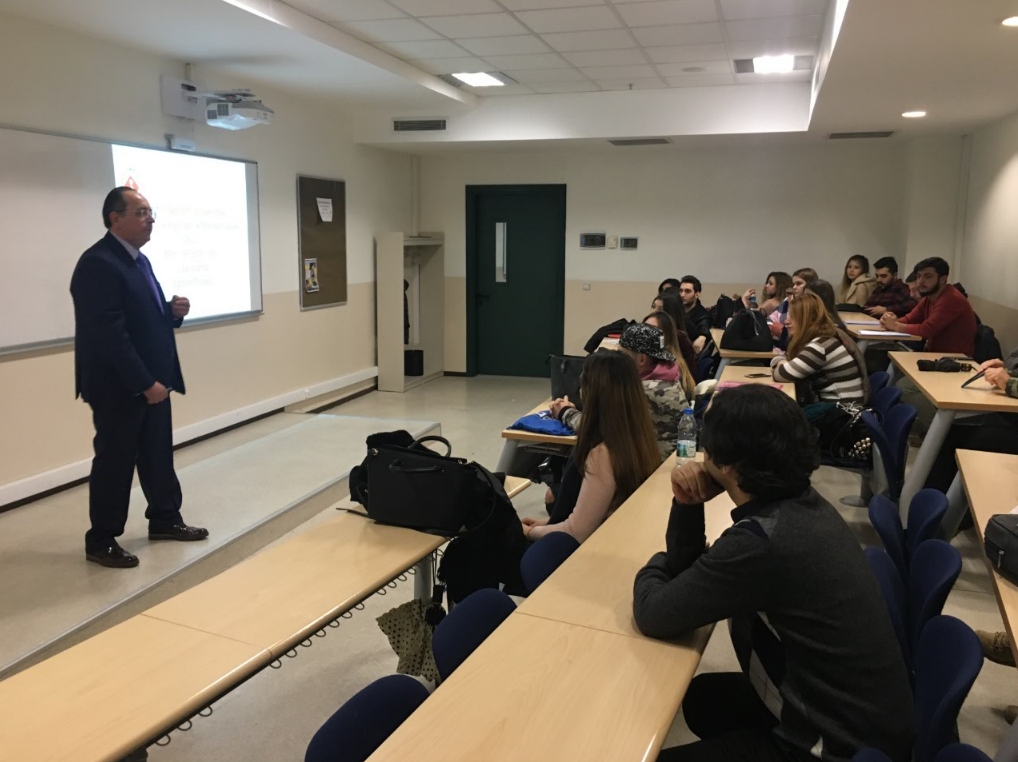
...
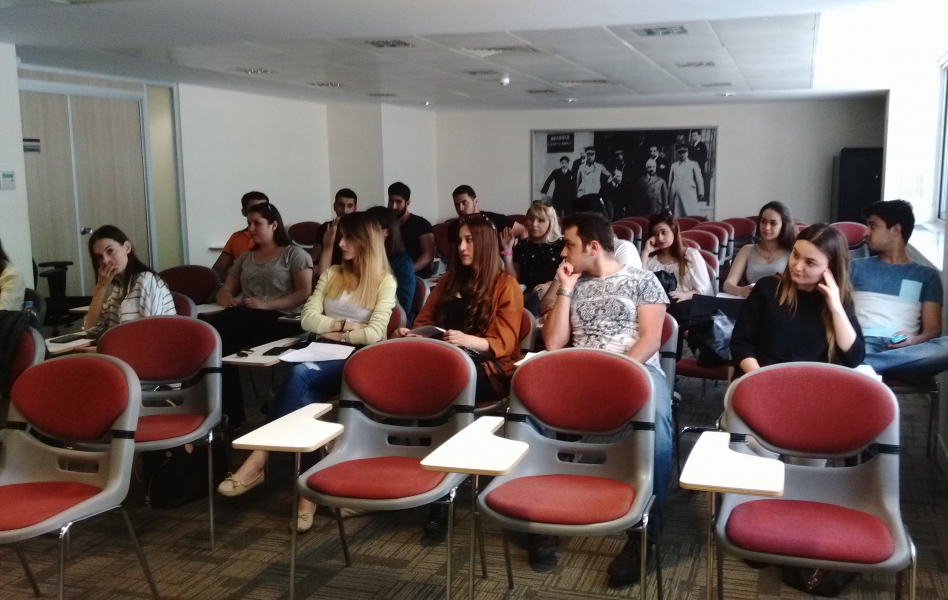
...
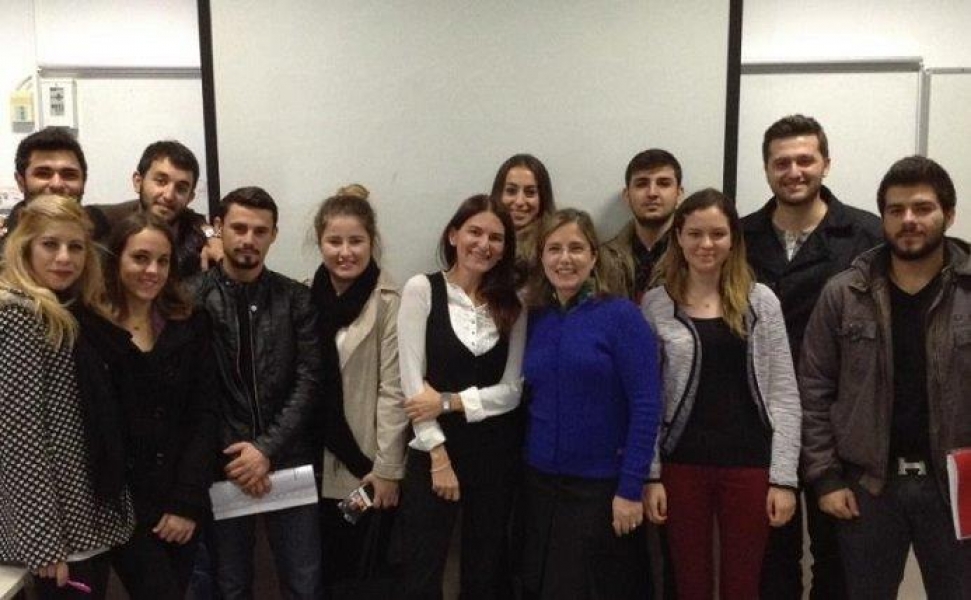
...
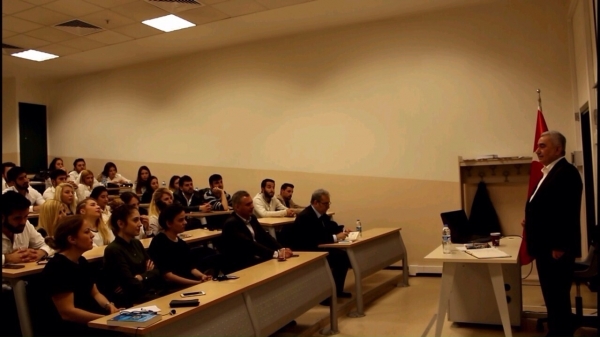
...

...
| Course Name |
Career Development
|
|
Code
|
Semester
|
Theory
(hour/week) |
Application/Lab
(hour/week) |
Local Credits
|
ECTS
|
|
BNK 296
|
Fall/Spring
|
0
|
2
|
1
|
4
|
| Prerequisites |
None
|
|||||
| Course Language |
Turkish
|
|||||
| Course Type |
Elective
|
|||||
| Course Level |
Short Cycle
|
|||||
| Mode of Delivery | - | |||||
| Teaching Methods and Techniques of the Course | DiscussionGroup WorkQ&ASimulationApplication: Experiment / Laboratory / WorkshopPractical demonstrationGuest SpeakerLecture / PresentationField work/Application | |||||
| National Occupation Classification | - | |||||
| Course Coordinator | - | |||||
| Course Lecturer(s) | ||||||
| Assistant(s) | - | |||||
| Course Objectives | The purpose of this course is to help students gain the skills and knowledge they need to succeed in the academic and professional world. This course includes competencies in career planning, communication skills, networking and job interviews. |
| Learning Outcomes |
The students who succeeded in this course;
|
| Course Description | This course includes theoretical and practical training required for students to be successful both in university life and after graduation. This course provides guidance to students in discovering their own talents, setting goals, and developing strategies to achieve these goals. Additionally, it is aimed to support students' future academic and professional success by helping them make informed decisions. |
| Related Sustainable Development Goals |
|
|
|
Core Courses | |
| Major Area Courses | ||
| Supportive Courses | ||
| Media and Management Skills Courses |
X
|
|
| Transferable Skill Courses |
| Week | Subjects | Related Preparation |
| 1 | Introduction to the course, curriculum introduction | |
| 2 | Career goal setting | Güldü, Ö., & Ersoy Kart, M. (2017). Kariyer planlama sürecinde kariyer engelleri ve kariyer geleceği algılarının rolü. Ankara Üniversitesi Siyasal Bilgiler Fakültesi Dergisi, 72(2), 377-400. https://doi.org/10.1501/SBFder_0000002567 |
| 3 | Personality, self and perception | Güngör, N. (2015). İletişime giriş (3rd ed., pp. 180-197, 210-251). Siyasal Kitabevi. ISBN: 978-605-5782-59-7 Aziz, A. (2013). İletişime giriş (4th ed., pp. 113-135). Hiperlink. ISBN: 978-9944-157-14-8 |
| 4 | Motivation strategies | Aslan, M., & Doğan, S. (2020). Dışsal motivasyon, içsel motivasyon ve performans etkileşimine kuramsal bir bakış. Süleyman Demirel Üniversitesi Vizyoner Dergisi, 11(26), 291-301. https://doi.org/10.21076/vizyoner.638479 |
| 5 | Effective communication skills (rhetoric, persuasion, debate) | Gürüz, D., & Eğinli, A. T. (2018). İletişim becerileri: Anlamak, anlatmak, anlaşmak (6th edition, pp. 251-280). Nobel Akademik Yayıncılık.; Cialdini, R. (2003). İknanın psikolojisi: Teorik ve pratik bir arada (pp. 22-81). Çev: Yasemin Fletcher. İstanbul: Mediacat Yayıncılık. |
| 6 | Presentation techniques, referencing (APA 7.0), and disinformation | Sarıdoğan, E. (2013). Toplantı ve sunum teknikleri (pp. 5-23). Papatya Bilim. ISBN 6054220564. American Psychological Association (2019). Publication Manual of the American Psychological Association (7th edition). American Psychological Association (https://apastyle.apa.org/). |
| 7 | Business life, corporate culture, and professional ethics | Sönmez, İ. O. (2019). İş hayatı 101 yeni başlayanlar için el kitabı (pp. 13-75). Hiper Yayın. ISBN: 9786052814192; Karsak, B. (2016). Kurumsal iletişim (pp. 13-25). Beta Yayınevi. ISBN: 9786053336051. |
| 8 | - | |
| 9 | Building a communication network, job and internship search, interview techniques (resume, cover letter, and motivation letter) | Denizli, U. (2019). İşe alım sürecinde sosyal ağ siteleri kullanımı: Tehlikeler ve fırsatlar. The Journal of International Scientific Researches, 4(3), 284-299. Çaylan, D. Ö., Akpınarlı, V., & Deveci, D. A. (2015). Öğrencilerin staj programları ile işe alım süreci: Denizcilik sektöründe “rotamız arkas projesi” örnek olay incelemesi. CBÜ Sosyal Bilimler Dergisi, 14(1), 243-258. |
| 10 | Personal branding and value creation | Bişkin, F., & Kaya, Y. (2011). İş yaşamında kişisel marka. Sosyal Ekonomik Araştırmalar Dergisi, 11(21), 555-570. |
| 11 | Ethical and moral values, social contribution and volunteering | Erdoğan, E., Semerci, P. U., Yentürk, N., & Yurttagül, L. (2021). Türkiye’de gönüllülük: Deneyimler, sınırlılıklar ve yeni açılımlar (s.14-55). İstanbul Bilgi Üniversitesi Yayınları. / Erdoğan, E., Semerci, P. U., Yentürk, N., & Yurttagül, L. (2021). Türkiye’de gönüllülük: Deneyimler, sınırlılıklar ve yeni açılımlar (s. 35-56). İstanbul Bilgi Üniversitesi Yayınları. |
| 12 | Assigning career projects to students and providing preliminary information | Career project will be assigned to students consisting of the following stages: setting career goals, industry and profession research, personal SWOT analysis, personal branding, and career development strategy. |
| 13 | Presentation of student projects | |
| 14 | Presentation of student projects | |
| 15 | Presentation of student projects | |
| 16 | Project submission week |
| Course Notes/Textbooks |
|
| Suggested Readings/Materials | Academic articles
Thesis
Video suggestions
|
| Semester Activities | Number | Weigthing |
| Participation |
1
|
20
|
| Laboratory / Application | ||
| Field Work |
1
|
10
|
| Quizzes / Studio Critiques | ||
| Portfolio | ||
| Homework / Assignments |
1
|
20
|
| Presentation / Jury | ||
| Project |
1
|
50
|
| Seminar / Workshop | ||
| Oral Exams | ||
| Midterm | ||
| Final Exam | ||
| Total |
| Weighting of Semester Activities on the Final Grade |
4
|
100
|
| Weighting of End-of-Semester Activities on the Final Grade | ||
| Total |
| Semester Activities | Number | Duration (Hours) | Workload |
|---|---|---|---|
| Theoretical Course Hours (Including exam week: 16 x total hours) |
16
|
0
|
|
| Laboratory / Application Hours (Including exam week: '.16.' x total hours) |
16
|
2
|
32
|
| Study Hours Out of Class |
14
|
2
|
28
|
| Field Work |
1
|
6
|
6
|
| Quizzes / Studio Critiques |
0
|
||
| Portfolio |
0
|
||
| Homework / Assignments |
1
|
14
|
14
|
| Presentation / Jury |
0
|
||
| Project |
1
|
36
|
36
|
| Seminar / Workshop |
0
|
||
| Oral Exam |
0
|
||
| Midterms |
0
|
||
| Final Exam |
0
|
||
| Total |
116
|
|
#
|
Program Competencies/Outcomes |
* Contribution Level
|
|||||
|
1
|
2
|
3
|
4
|
5
|
|||
| 1 |
To be able to develop themselves in the subjects of obtaining the financial resources necessary for the activities of individuals and enterprises under the most favorable conditions and examining the use of the accumulated funds. |
-
|
-
|
-
|
-
|
-
|
|
| 2 |
To be able to discuss the role, importance and functions of the institutions providing banking and insurance services in the economic system |
-
|
-
|
-
|
-
|
-
|
|
| 3 |
To be able to evaluate the organizational structure, business processes, and service portfolios of banks, insurance companies, and other financial institutions operating in the sector. |
-
|
-
|
-
|
-
|
-
|
|
| 4 |
To be able to develop skills in identifying, measuring, and assessing financial and operational risks, and to acquire fundamental knowledge to understand and apply insurance products against these risks. |
-
|
-
|
-
|
-
|
-
|
|
| 5 |
To be able to recognize financial products offered in the banking and insurance sector, and to gain skills in effective marketing and sales, as well as managing long-term customer relationships. |
-
|
-
|
-
|
-
|
-
|
|
| 6 |
To be able to possess basic legal knowledge and closely monitor legislative changes relevant to the field. |
-
|
-
|
-
|
-
|
-
|
|
| 7 |
To be able to possess basic knowledge of accounting and analyze financial statements to evaluate the financial status of businesses. |
-
|
-
|
-
|
-
|
-
|
|
| 8 |
To be able to follow technological innovations in the financial sector and acquire knowledge about the role of blockchain and artificial intelligence applications in the industry. |
-
|
-
|
-
|
-
|
-
|
|
| 9 |
To be able to make decisions based on the principles of professional ethics, accountability and responsibility |
-
|
-
|
-
|
-
|
-
|
|
| 10 |
To be able to follow international financial markets and global economic indicators by using English at least at the A2 level of the "European Language Portfolio" |
-
|
-
|
-
|
-
|
-
|
|
| 11 |
To be able to analyze and interpret banking and insurance data, and to develop data-driven strategies for financial decision-making. |
-
|
-
|
X
|
-
|
-
|
|
| 12 |
To be able to acquire knowledge about the components of national and international systems and the implementation of sector policies. |
-
|
-
|
-
|
X
|
-
|
|
| 13 |
To be able to direct his/her education to a further level of education |
-
|
-
|
X
|
-
|
-
|
|
*1 Lowest, 2 Low, 3 Average, 4 High, 5 Highest

...

...

...

...

...

...

As Izmir University of Economics transforms into a world-class university, it also raises successful young people with global competence.
More..Izmir University of Economics produces qualified knowledge and competent technologies.
More..Izmir University of Economics sees producing social benefit as its reason for existence.
More..